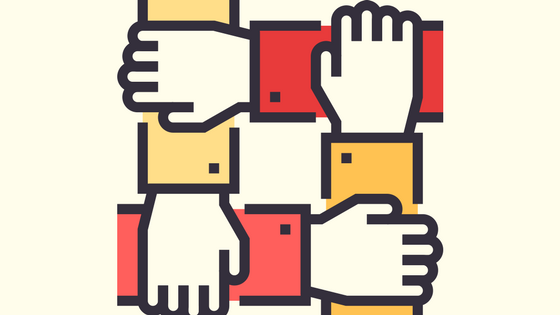Individual employee performance isn’t where to look today to improve productivity and innovation. In our increasingly global world, teams are where things happen.
Collaborative activities account for over fifty percent of business interactions and have for the past twenty years. People spend almost 3/4 of their day communicating with colleagues in some manner.
These are good trends. Studies show that groups tend to innovate faster, see mistakes quicker and generally find better solutions than individuals. Teams are the fundamental unit of organizations, and not just companies, but in government and schools as well.
Not Just How People Work, But How People Work Together
Google is renowned for its forward-looking workplace with a culture that values mentoring and appreciates employees and their families. In 2012, they launched Project Aristotle to explore what makes a team great. Project Aristotle started by reviewing fifty years worth of studies on how teams function. Over 180 teams from all over Google were put under the microscope.
ALSO READ: How Yelp is Building an Extraordinary Culture of Teamwork
Initially the focus was on personality types. Did introverts work better with extroverts? Did friends make better teammates? Google, known for their skills in detecting patterns, couldn’t find any. No specific trait or personality type jumped out as making a difference. The “who” part of the equation didn’t seem to matter.
Julia Rozovsky, a former graduate of the Yale School of Management was assigned to Project Aristotle. She was perfectly suited for this task. While at Yale, she had a stressful experience with her assigned study group, yet a successful and memorable one with her case competition team. Both were made up of similar personality types. She couldn’t stop thinking about why this would be. When she was hired by Google upon graduating, Project Aristotle promised the answer.
Building the Perfect Team
The focus on individual traits wasn’t turning up anything particularly noteworthy. Rozvosky and her team started looking instead at group norms, or what is commonly called culture traits. These unwritten rules exist in all companies and organizations. Whether codified or unspoken, they determine how people act when they are together. In a team setting, it showed that culture overrides individual traits. This realization turned out to be the key to what creates the perfect team. The answer was the culture. So, which norms, or culture traits, mattered most? Now the problem wasn’t no pattern, but too many.
In 2008, Carnegie Mellon, M.I.T. and Union College were also looking for the makeup of a perfect team. They applied an approach used previously to measure individual intelligence, this time to group intelligence. They recruited 699 people, divided them into groups, and gave them varying assignments.
Discoveries
Many things surfaced. For example, in less diverse groups, say all experts in their field, people tended to interact as individuals rather than as team-members. They would speak mainly about their area of expertise, then become passive observers. There was little proof that as a group they would become collectively more intelligent.
In more diverse and less structured groups, people would speak as much as they needed to. Members spoke in roughly the same proportion . At the end, everyone had a chance to be heard. As long as everyone got a chance to talk, the team did well. There weren’t as many individual stars, but the sum was greater than its parts, which is the goal of collective intelligence. There was little to suggest that, as a group, they would become more collectively intelligent.
RELATED: 3 Keys to Fostering Productive Conflict to Improve Collaboration
Also, these winning teams exhibited a high degree of social sensitivity. They were good at picking up on how others felt based on non-verbal cues. If they noticed that someone was feeling left out, they would reach out to fix that. Cultures of respect and sensitivity were winning ones. Other factors , like clear goals and dependable team-mates mattered too.
The overriding factor, however, was psychological safety. A team with the freedom to discuss all ideas, even bad ones, is a winning team. Mutual respect allows members to take risks and not censor themselves. This enables wide conversations, many personal and even emotional. Not a mindset that generally attract engineers, yet it worked for everyone.
Being able to be yourself was liberating. And that meant, your real self, not your “work” self. As importantly, one must also be prepared to meet others who do the same. In its search for the perfect team, Google discovered the value of embracing emotions and imperfections.
Teams that did well, did so no regardless of the assignment. The key was how they treated each other.
Rolling It Out
After three years of conducting, collecting, analyzing, in 2014, Google was ready to share the findings with some of its 51,000 employees. The hope was that they would contribute further thinking based on the learning so far.
Team manager, Matt Sakaguchi’s wanted to go further. He had an under-performing team and wanted to find out why. After a survey followed by an off-site gathering, his team added an additional key ingredient: the importance of knowing how what you do fits into the larger mission -- the why.
Google’s contribution to identifying the value of culture and how it supports and enhances teams has put data around emotions leading to a more human OS where bonds rule.
Read more tips and best practices about teamwork and company culture here.
This post is based on Charles Duhigg’s article, “What Google Learned From Its Quest to Build the Perfect Team,” in the New York Times February 28, 2017 Sunday Magazine adapted from his upcoming book, “Smarter Faster Better: The Secrets of Productivity in Life and Business”.
About the Author
Jann is a brand strategist and storyteller. She has a unique process to help companies determine their unique advantages and tell the stories that support them.











